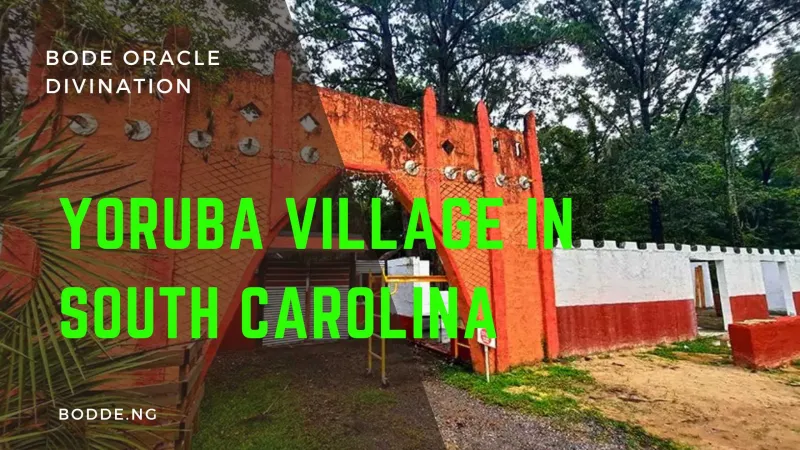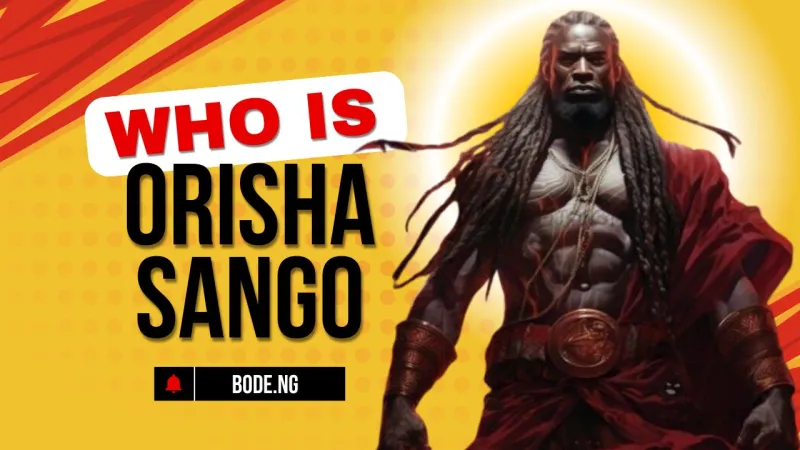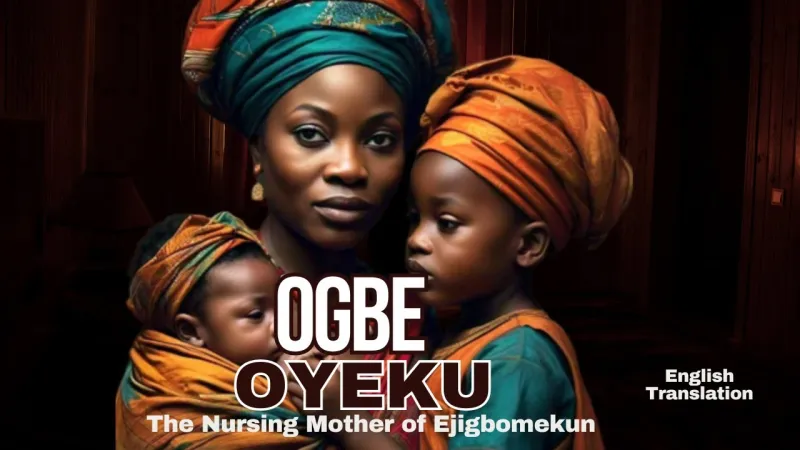Located in Sheldon, South Carolina, Oyotunji African Village stands as a remarkable homage to the Yoruba culture and religion. Founded in 1970 by Walter Eugene King, now known as Oba Efuntola Oseijiman Adefunmi I, the village serves as a cultural and spiritual haven for African Americans practicing the Yoruba faith of West Africa.
As you approach Oyotunji African Village, a sign greets you with these words: “You are leaving the United States. You are entering the Yoruba Kingdom. In the name of His Highness King Efuntola, Peace.”
“Welcome to the Sacred Yoruba Village of Oyotunji. The only Village in North America built by Priests of the Orisha Voodoo Cults as a tribute to our Ancestors. These Priests preserve the customs, laws, and religion of the African Race.”
The name "Oyotunji" translates to “Oyo rises again,” symbolizing the rebirth of the ancient Oyo Empire of the Yoruba people in the heart of America. Spanning 27 acres, Oyotunji is often regarded as North America’s oldest authentic African village.
People Also Read
All What To Know About Esu Yoruba
Brazil Yoruba And The Yoruba in Brazil
The Visionary Behind Oyotunji
Walter Eugene King was born in Detroit, Michigan, in 1928. As a teenager, he became fascinated with Afro-Haitian and Egyptian traditions. His involvement with the Katherine Dunham Dance Troupe further deepened his understanding of African culture.
In 1959, during a trip to Cuba, King became the first African American to be initiated into the Orisha priesthood, adopting the name Efuntola Oseijiman Adefunmi.
Upon his return to the U.S., he founded the Yoruba Temple in Harlem in 1960. This temple laid the foundation for Oyotunji Village, which he envisioned as a self-sustaining community rooted in African traditions.
The establishment of Oyotunji in 1970 marked a significant milestone in the preservation of Yoruba heritage. Guided by the principles of Black nationalism and cultural revival, Oba Adefunmi created a space where African Americans could reconnect with their ancestral roots.
He also established the African Theological Archministry and restructured the Orisa-Vodun priesthood to reflect traditional Yoruba practices. Over the years, Oyotunji became a thriving community, initially housing over 200 residents.
Today, it is home to fewer than ten families, governed by an Oba (king) and a council. Despite its smaller size, the village remains dedicated to Yoruba teachings, which emphasize the interconnectedness of the Supreme Being (Olodumare), deities (Orishas), and ancestral spirits.
Read More
Yoruba Tribal Markings And Cultural Significance
Cultural Practices and Leadership
Oyotunji’s vibrant spiritual life is sustained through rituals, chants, music, and ceremonies. The community celebrates annual festivals, conducts spiritual services such as naming ceremonies, and offers educational resources through its network of priests and priestesses.
Following the passing of Oba Efuntola in 2005, his son, Oba Adejuyigbe Adefunmi II, ascended the throne. Under his leadership, Oyotunji continues to celebrate Yoruba culture and history, hosting festivals, producing educational materials, and serving as a beacon of African heritage in the diaspora.
See More Trending Posts
Yoruba Alphabet And Pronunciation
Yoruba Mythology Deities And Orisa
Ifa Yoruba A Global Spiritual Practice
Yoruba Culture and the Slave Trade
The resilience of Yoruba culture dates back to the transatlantic slave trade when many Africans carried their traditions to foreign lands. Despite the hardships of slavery and assimilation, Yoruba customs were preserved and passed down through generations.
The Yoruba people in the diaspora maintained their identity by practicing their traditional religion and celebrating their cultural heritage. Even today, Yoruba culture remains one of the most prominent and celebrated African traditions worldwide.
Oyotunji African Village stands as a reference to the enduring spirit of the Yoruba people. From its founder’s initiation into the priesthood in Cuba to his travels to Nigeria, where he was inducted into the Ifa priesthood, Oba Adefunmi’s dedication to preserving Yoruba culture has left an indelible mark.
Now more than 50 years old, Oyotunji continues to inspire a deep appreciation for African traditions, art, and history. It remains a hub for cultural revival, education, and spiritual enlightenment, ensuring that the Yoruba legacy thrives in the diaspora for generations to come.



